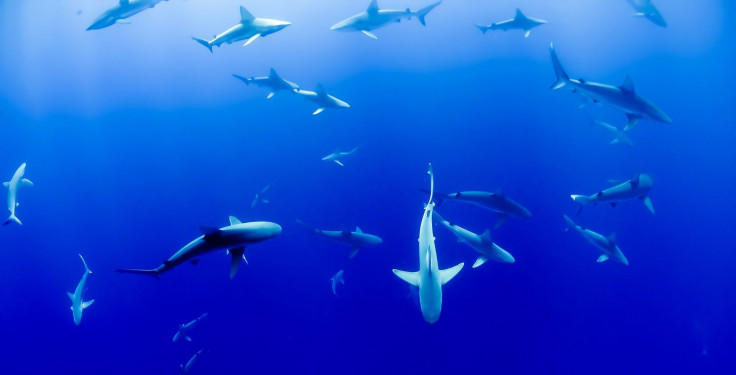Sharks Have A Lot Of Friends And Learn From Their Mistakes

Sharks have so many best friends that if you take a bunch away, it won’t even miss them.
Researchers in Australia saw these tightknit connections in action as they strategically captured and released members of a blacktip reef shark population in French Polynesia in the South Pacific, according to an article in Biology Letters. They found that a shark’s social network is so strong that you could remove up to half of the group before the community collapsed. Their experiment also showed that the sharks were able to learn from the captures to avoid the scientists’ grasps in the future.
“Not all sharks are equal in terms of maintaining the connectivity within their social network,” Macquarie University in Sydney said in a statement. The researchers there worked with others from the local Centre de Recherche Insulaire et Observatoire de l’Environnement. “The role that an individual shark plays in its social network helps maintain social cohesion and can enhance the shark network’s resilience to environmental and human-influenced disturbances.”
It may sound strange to think of animals that aren’t warm and cuddly as being social creatures, but sharks do have these connections and personalities. It’s something the Australian university has already investigated, finding that sharks had consistent behaviors that differed from one another — for example, some sharks tend to exhibit bolder behavior than others.
“Personality, by its very name, seems to apply only to a person, e.g., a human,” Smithsonian magazine says. “It turns out scientists are finding personality in a whole range of species, sharks now included.”
A sign of sharks acting socially might be them following one another — and some are more social than others.
In addition to better understanding how sharks operate on a social level, the findings show that sharks can learn from captures and thus avoid future incidents, which could be important information for scientists who measure shark populations using capture methods.
The blacktip reef shark used in the new social study is not to be confused with the blacktip shark — the former is smaller and can be found mostly in the Pacific and Indian Oceans, as well as the eastern Mediterranean Sea, while the latter is an Atlantic shark.
See also:
© Copyright IBTimes 2024. All rights reserved.











